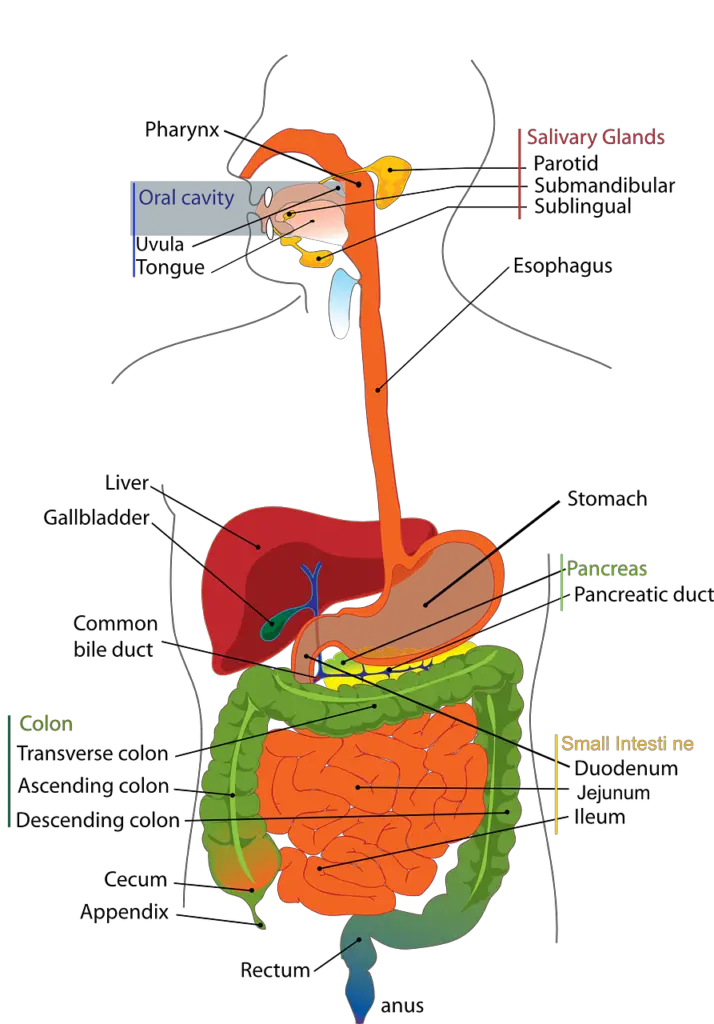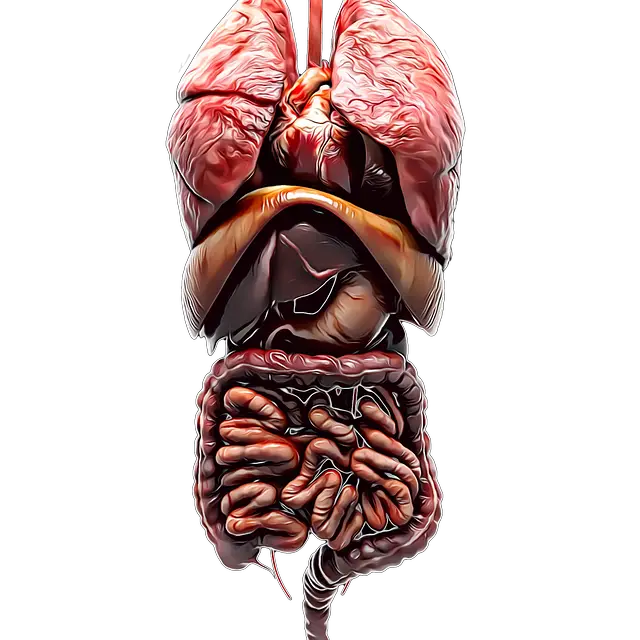Unveiling Hypothyroidism Causes, Symptoms, Therapies and Dietary Recommendation

Hypothyroidism, a condition characterized by an underactive thyroid gland, affects millions of people worldwide. The thyroid gland, a butterfly-shaped organ located in the front of the neck, produces hormones that regulate metabolism, energy levels, and numerous bodily functions. When the thyroid gland fails to produce enough hormones, it can lead to a myriad of symptoms and health complications. In this article, we delve into the causes, symptoms, and therapeutic approaches for managing hypothyroidism.

Page Contents
- 1 Unveiling Hypothyroidism Causes, Symptoms, and Therapies
- 2 6 Causes of Hypothyroidism:
- 3 8 Symptoms of Hypothyroidism:
- 4 6 Therapeutic Approaches for Hypothyroidism:
- 5 For individuals with hypothyroidism, consuming a balanced diet that includes nutrient-rich foods can help support thyroid health and overall well-being.
- 6 While there are No One specific “miracle” foods for treating hypothyroidism, incorporating the following nutrient-dense options into your diet is beneficial:
- 7 Here are some activities that may be particularly beneficial for individuals with hypothyroidism:
- 8 Conclusion
Unveiling Hypothyroidism Causes, Symptoms, and Therapies
6 Causes of Hypothyroidism:
- Autoimmune Disease (Hashimoto’s Thyroiditis): The most common cause of hypothyroidism is Hashimoto’s thyroiditis, an autoimmune condition where the body’s immune system attacks the thyroid gland, leading to inflammation and impaired hormone production.
- Thyroid Surgery or Radiation Therapy: Surgery to remove part or all of the thyroid gland, or radiation therapy aimed at treating conditions like thyroid cancer, can damage the thyroid gland, resulting in hypothyroidism.
- Iodine Deficiency: Iodine is crucial for the production of thyroid hormones. A deficiency in iodine can hinder the thyroid gland’s ability to produce adequate hormones, leading to hypothyroidism. However, this cause is rare in regions where iodine is routinely added to salt.
- Medications: Certain medications, such as lithium, amiodarone, and some anti-thyroid medications, can interfere with thyroid hormone production and contribute to hypothyroidism.
- Congenital Hypothyroidism: Some babies are born with an underactive thyroid gland, either due to a developmental defect or an inherited condition.
- Pituitary Gland Disorders: Hypothyroidism can also result from disorders affecting the pituitary gland or hypothalamus, which regulate thyroid hormone production by releasing thyroid-stimulating hormone (TSH).
8 Symptoms of Hypothyroidism:
The symptoms of hypothyroidism can vary widely among individuals and may develop gradually over time. Common signs and symptoms include:
- Fatigue and Weakness: Individuals with hypothyroidism often experience persistent fatigue, weakness, and a general lack of energy, despite getting adequate rest.
- Weight Gain: Severity on unexplained weight gain or difficulty losing weight is a common symptom of hypothyroidism, as it can slow down metabolism.
- Cold Sensitivity: Hypothyroidism can affect the body’s ability to regulate temperature, leading to increased sensitivity to cold and cold intolerance.
- Dry Skin and Hair: Dry, rough skin and brittle hair that is prone to breakage are often observed in individuals with hypothyroidism.
- Muscle and Joint Pain: Muscle aches, stiffness, and joint pain are common complaints among those with hypothyroidism.
- Constipation: Exceedingly slowed digestion due to reduced thyroid hormone levels can lead to constipation.
- Irregular Menstrual Periods: Hypothyroidism can disrupt the menstrual cycle, causing irregular periods or heavier than usual menstrual bleeding.
- Depression and Cognitive Impairment: Some individuals with hypothyroidism may experience depression, difficulty concentrating, and memory problems.
6 Therapeutic Approaches for Hypothyroidism:
- Thyroid Hormone Replacement Therapy: The standard treatment for hypothyroidism involves daily oral administration of synthetic thyroid hormone medication, typically levothyroxine (Synthroid, Levoxyl, etc.). This medication helps restore normal thyroid hormone levels in the body.
- Regular Monitoring: Once treatment begins, regular monitoring of thyroid hormone levels through blood tests is essential to ensure that hormone levels are within the optimal range. Adjustments to medication dosage may be necessary based on these tests and the individual’s response to treatment.
- Lifestyle Modifications: Adopting a healthy lifestyle can complement medical treatment for hypothyroidism. This includes eating a balanced diet rich in fruits, vegetables, and whole grains, engaging in regular exercise, managing stress levels, and getting adequate sleep.
- Avoidance of Goitrogenic Foods: Some foods, known as goitrogens, can interfere with thyroid function and should be consumed in moderation or avoided. Examples of these include soy products, cruciferous vegetables (such as broccoli, cabbage, and cauliflower), and certain fruits.
- Supplementation: In cases where iodine deficiency contributes to hypothyroidism, iodine supplements may be recommended. However, supplementation should only be undertaken under the guidance of a healthcare professional, as excessive iodine intake can also have adverse effects.
- Management of Comorbidities: Individuals with hypothyroidism may have other underlying health conditions, such as high cholesterol or diabetes. Proper management of these comorbidities is crucial for overall health and well-being.


For individuals with hypothyroidism, consuming a balanced diet that includes nutrient-rich foods can help support thyroid health and overall well-being.
While there are No One specific “miracle” foods for treating hypothyroidism, incorporating the following nutrient-dense options into your diet is beneficial:
- Iodine-Rich Foods: Iodine is essential for thyroid hormone production. Incorporating iodine-rich foods into your diet can help support thyroid function. Good sources of iodine include:
- Seafood (e.g., fish, shrimp, seaweeds)
- Dairy products (e.g., yogurt, milk, cheese)
- Iodized salt (use in moderation)
- Eggs
- Selenium-Rich Foods: Selenium is a trace mineral that plays a crucial role in thyroid hormone metabolism and function. Selenium-rich foods include:
- Brazil nuts, almond
- Sunflower seeds, squash seeds
- Fish (e.g., tuna, halibut, sardines, salmon, mackerel)
- Shellfish (e.g., shrimp, oysters)
- Eggs
- Whole grains (e.g., brown rice, oats)
- Lean Protein Sources: Protein is essential for tissue repair and metabolic function. Opt for lean protein sources such as:
- Skinless poultry (e.g., chicken, turkey, geese)
- Fish
- Lean cuts of beef or pork
- Legumes (e.g., beans, lentils, chickpeas)
- Tofu and tempeh (for vegetarians and vegans)
- Fruits and Vegetables: Colorful fruits and vegetables provide a wide range of vitamins, minerals, and antioxidants that support overall health. Aim for a variety of fruits and vegetables, including:
- Berries (e.g., blueberries, strawberries, raspberries, java plum duhat)
- Leafy greens (e.g., spinach, kale, Swiss chard, lettuce)
- Cruciferous vegetables (in moderation; see note below)
- Citrus fruits (e.g., oranges, grapefruits, lemons, pomelo, guava, mangosteen, rambutan)
- Sweet potatoes
- Bell peppers
- Whole Grains: Complex carbohydrates from whole grains provide sustained energy and fiber, which is important for digestive health. Choose whole grains such as:
- Quinoa
- Brown rice
- Oats
- Barley
- Whole wheat bread and pasta
- Healthy Fats: Omega-3 fatty acids and monounsaturated fats are beneficial for heart health and may help reduce inflammation. Sources of healthy fats include:
- Fatty fish (e.g., salmon, mackerel, trout, sardines, tuna, cod, herring)
- Nuts and seeds (e.g., almonds, walnuts, marang nuts, flaxseeds, chia seeds, sesame seeds, squash seeds)
- Avocados
- Olive oil
- Probiotic-Rich Foods: Probiotics support gut health, which is important for nutrient absorption and immune function. Include probiotic-rich foods such as:
- Yogurt (look for varieties with live active cultures)
- Kefir
- Fermented foods (e.g., sauerkraut, kimchi, miso, atsara)



Engaging in walking barefoot at the beac sands is an essential earthing and grounding approach.
Engaging in regular physical activity is beneficial for overall health and can help manage symptoms associated with hypothyroidism. While there are no specific exercises tailored exclusively for hypothyroidism, incorporating a variety of activities into your routine can improve energy levels, mood, and overall well-being.
Here are some activities that may be particularly beneficial for individuals with hypothyroidism:
- Cardiovascular Exercise: Aerobic or cardiovascular exercises can help boost metabolism, improve circulation, and increase energy levels. Aim for at least 150 minutes of moderate-intensity aerobic activity per week, such as:
- Brisk walking
- Jogging or running
- Cycling
- Hiking
- Swimming
- Dancing
- Aerobic classes
- Strength Training: Building muscle mass through strength training exercises can help enhance metabolism, increase strength and endurance, and improve overall body composition. Incorporate resistance training exercises targeting major muscle groups at least two days per week, using:
- Free weights (light dumbbells)
- Resistance bands
- Bodyweight exercises (push-ups, squats, lunges)
- Weight machines
- Earthing: Earthing or grounding techniques combines physical postures, breathing techniques, and walking barefoot on the beach sands to promote relaxation, reduce stress, and improve flexibility and balance. Practicing this regularly can help alleviate symptoms such as fatigue, muscle stiffness, and stress associated with hypothyroidism.
- Pilates: Pilates focuses on strengthening the core muscles, improving posture, and enhancing overall body awareness and alignment. Pilates exercises can be modified to accommodate different fitness levels and physical abilities, making it suitable for individuals with hypothyroidism.
- Tai Chi: Tai Chi is a gentle form of martial arts characterized by slow, flowing movements and deep breathing exercises. Tai Chi promotes relaxation, reduces stress, and improves balance and coordination, making it an excellent choice for individuals with hypothyroidism who may experience fatigue or muscle weakness.
- Low-Impact Activities: Low-impact exercises are gentler on the joints and can be beneficial for individuals with hypothyroidism who may have joint pain or stiffness. Consider incorporating the activities such as: Walking, Swimming, Cycling (stationary or outdoor).
NOTE
It’s worth noting that while cruciferous vegetables (e.g., broccoli, cabbage, cauliflower) contain compounds called goitrogens that can interfere with thyroid function when consumed raw in large amounts, cooking these vegetables can help neutralize the goitrogens, making them safe for consumption in moderation.
Overall, maintaining a well-balanced diet that includes a variety of nutrient-rich foods is key for supporting thyroid health and managing hypothyroidism. As always, it’s essential to consult with a healthcare professional or registered dietitian for personalized dietary recommendations based on individual health needs and preferences.
Conclusion
In conclusion, hypothyroidism is a common endocrine disorder that can significantly impact quality of life if left untreated. However, with early detection, appropriate medical intervention, and lifestyle modifications, individuals with hypothyroidism can effectively manage their condition and lead fulfilling lives. If you suspect you may have hypothyroidism or are experiencing symptoms suggestive of thyroid dysfunction, it is essential to consult a healthcare professional for evaluation and personalized treatment recommendations.







